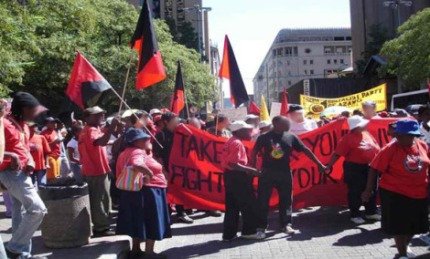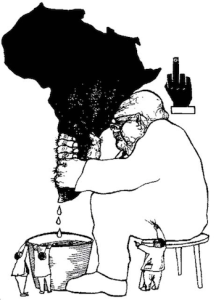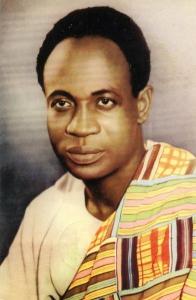 (International anarchist statement)
(International anarchist statement)
The murder of George Floyd in the United States by the police has unleashed a wave of popular outrage in that country and throughout the world. Massive demonstrations, direct action against the police and in response to repression have been common these past weeks. This fact has brought to the fore the profound racism that exists in today’s societies.
This highlights the historical role of racism in the construction of capitalist society. The expansion of capitalism — long before the Industrial Revolution — had a central element: the looting of entire continents, the genocide of entire populations, the appropriation of territories, resources and bodies by European states and their bourgeoisie, in order to achieve the accumulation of capital later invested in the development of machinery and industry in the 18th century. It was this colonial strategy of looting resources throughout the Americas, accompanied by the slave trade and human trafficking in Africa and South America, which allowed the consolidation of capitalism.

 A year ago, starting 20 October 2015, around 75 small shops were looted, some burned down, in the eastern townships and downtown area of the small Eastern Cape university town of Grahamstown/ iRhini, South Africa. The attacks targeted Asian and African immigrants, many of them Muslim, and displaced 500 people. These riots were largely ignored by the media.
A year ago, starting 20 October 2015, around 75 small shops were looted, some burned down, in the eastern townships and downtown area of the small Eastern Cape university town of Grahamstown/ iRhini, South Africa. The attacks targeted Asian and African immigrants, many of them Muslim, and displaced 500 people. These riots were largely ignored by the media. Roughly 50 years ago we saw the dismantling of most of the European colonial empires in Africa. High hopes greeted the “new nations” that merged – and certainly, a move from colonial rule, with its racism and external control and extractive economies, was progressive.
Roughly 50 years ago we saw the dismantling of most of the European colonial empires in Africa. High hopes greeted the “new nations” that merged – and certainly, a move from colonial rule, with its racism and external control and extractive economies, was progressive. Ghana, West Africa, was a British colony called “Gold Coast” until 1957. It became the first independent country in “black” Africa after reforms and struggles in the 1940s and 1950s. The new president, the brilliant Kwame Nkrumah, and his Convention People’s Party (CPP), had fought for independence. Now they aimed at major changes in the society, even speaking of socialism. And Nkrumah proposed a united African government for the continent: Pan-Africanism.
Ghana, West Africa, was a British colony called “Gold Coast” until 1957. It became the first independent country in “black” Africa after reforms and struggles in the 1940s and 1950s. The new president, the brilliant Kwame Nkrumah, and his Convention People’s Party (CPP), had fought for independence. Now they aimed at major changes in the society, even speaking of socialism. And Nkrumah proposed a united African government for the continent: Pan-Africanism. As the 100th anniversary of the outbreak in August 1914 of World War One fades, let us remember that imperialism harms all working class people – including those in imperialist and Western countries, and the white working class.
As the 100th anniversary of the outbreak in August 1914 of World War One fades, let us remember that imperialism harms all working class people – including those in imperialist and Western countries, and the white working class.


